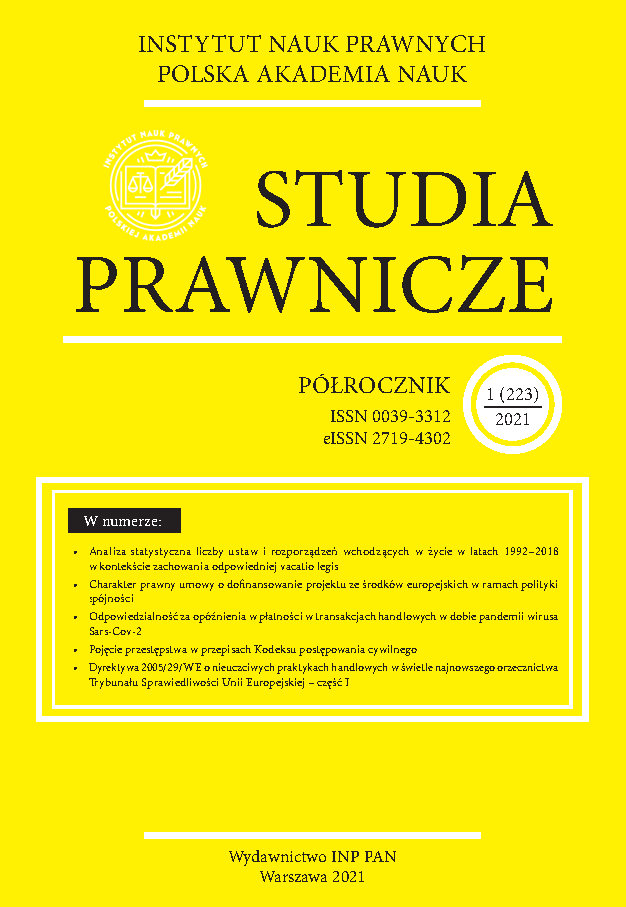Nieprzedawnialne roszczenia majątkowe w prawie cywilnym
The proprietary claims exempted from prescription in civil law
Author(s): Mateusz GrochowskiSubject(s): Law, Constitution, Jurisprudence
Published by: Instytut Nauk Prawnych PAN
Keywords: limitation; right to property; proprietary claims; pecuniary claim; date
Summary/Abstract: The text deals with the question of proprietary claims in the Polish civil law, which are exempted from prescription. The existence of such claims is a clear exception from the general rule set forth in Article 117 of the Civil Code (hereinafter: “CC”), which embraces all the proprietary claims with the general concept of prescription after the elapse of particular term (specified further in the following provisions). The article tries to explore the premises behind the general concept of lack of prescription, as well as to identify particular reasons for disapplication of Article 117 CC on the grounds of particular types of claims.The statute exempts explicitly two types of claims from prescription. It is the case of Article 223 § 1 CC, declaring lack of prescription for the damage claims supplementary to vindicatory claim. Similarly, according to Article 220 CC prescription does not embrace a claim for dissolution of co-ownership. In the other instances, the similar conclusion is derived in interpretation, mainly upon functional and systematic arguments. The case-law and the private law scholarship identify five examples of such claims. In all of these instances, the main reason behind disapplication of prescription rules is the close link of this claims with real property. Prescription of these claims and, hence, the possibility to transform them into natural obligations, seem from this perspective counter-functional and difficult to reconcile with the other principles and provisions of property law. It pertains, first of all, to the claims for establishing a way of necessity ease (Article 145 and 146 CC). Secondly, the same view is adopted for art. 151 CC, regarding another type of easement – available in the case of unintentional introducing a building or another facility behind the border of the somebody else’s ground. Thirdly, in the similar case of the intruding with a construction into another real property, the lack of prescription is adopted as regards the claim for transfer of title to the occupied part of the ground (Article 231 § 1 CC). Fourthly, the lack of prescription has been approved for the claim for establishing a transmission servitude (art. 3052 CC). Fifthly, the same solution has been proposed for the claim for transfer of title in performance of the contract with solely obligatory effects. This interpretation has been, however, rejected in the subsequent case-law and does not seem to be acclaimed currently.
Journal: Studia Prawnicze
- Issue Year: 207/2016
- Issue No: 3
- Page Range: 149-171
- Page Count: 23
- Language: Polish

